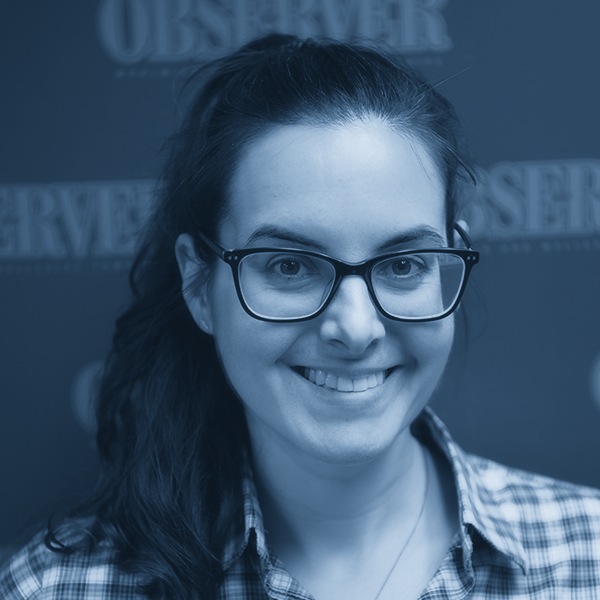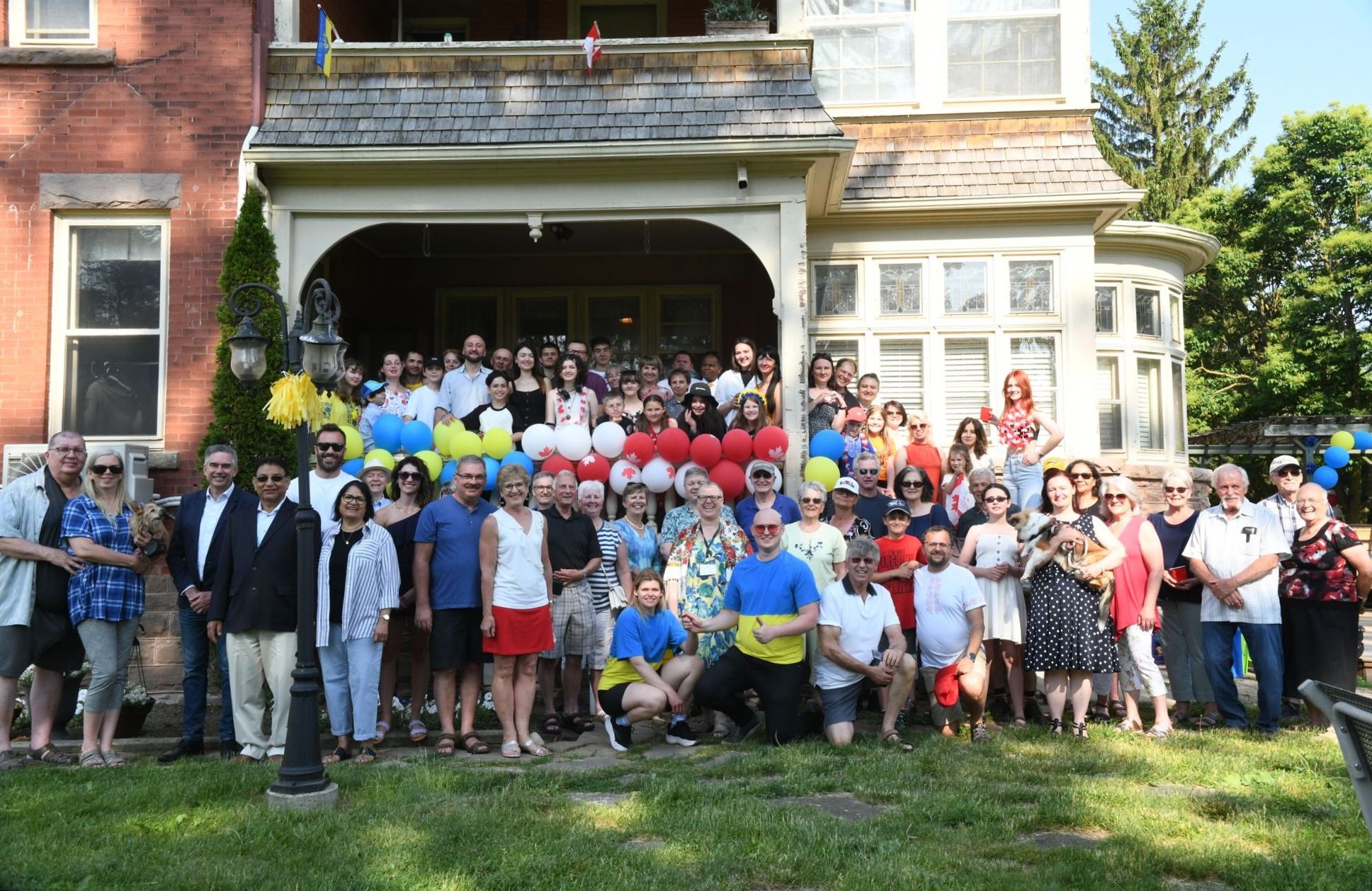On February 24, 2022, Oleksondra and Taras Demshenko woke up to a phone call at their home in Sumy, a Ukrainian city close to the Russian border. A cousin was calling, crying, telling them the Russian military was bombing her town.
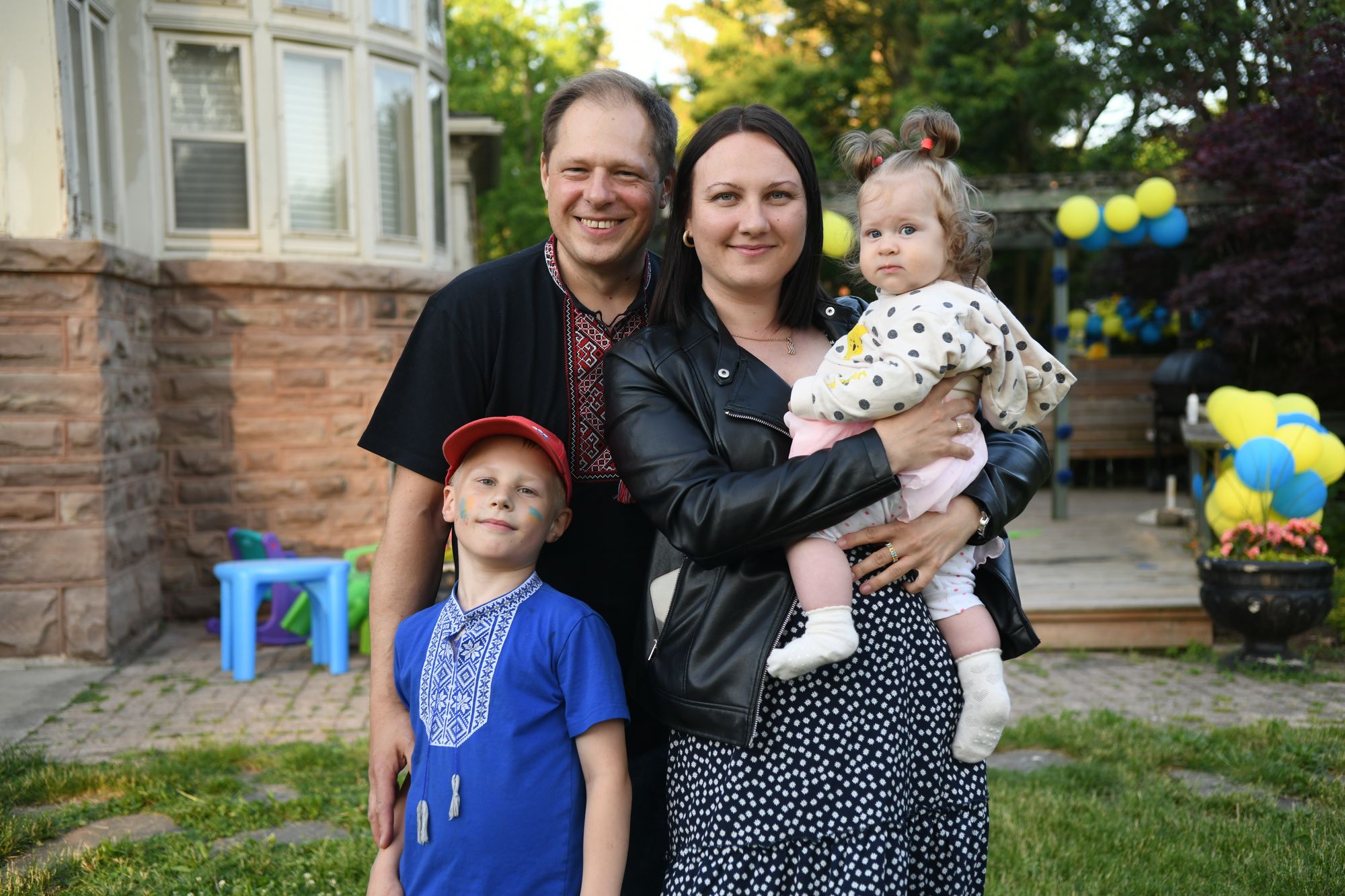
“At first, we did not even believe that. We turned on TV and checked the news. However, there was nothing on the news at that moment,” said Taras Demshenko. “But when we opened the windows, we (heard) sounds like distant thunder, you know? It’s hard to describe the sound – it’s like thunder. Shooting and bombing and something like that. It was pretty distant, but I understood I should get prepared.”
Just a month prior, the family learned that Oleksandra was expecting their second child.
Taras said that he immediately went to fill up the car at the gas station. The family’s plan was to flee the next day, staying a little while longer to see how things would develop. But, it was too late, the Russian army already occupied Sumy, and set up checkpoints at all the entrances and exits to the city.
The family kept up to date on the situation through social media apps like Whatsapp or Telegram.
At first, the Russian military was talking to people trying to leave, and turning them back home. “Then in a couple of days, we heard some stories on Telegram channels that a family was killed by Russians at a block post. And there was another such story and another one.”
They also watched the apps to know when air raids were coming. They didn’t have a basement, so Taras, Oleksondra and their young son Illia would run to a neighbour’s home to hide in theirs when they were warned over social media of incoming bombs. Bombs were dropped on the local water treatment plant, which was so close to their home, the airwaves from the impact hit the windows. A power plant was also bombed.
“So all electricity was shut off. And we spent three days without any electricity at all. And it was pretty cold. It was still winter, February. And our house had electrical heating. So we decided to move to (Oleksandra’s) mother’s (home),” said Taras.
“It is in the centre of the city. And we hid in bomb shelters. And waited for green corridor,” said Oleksandra.
Eventually Ukrainian politicians negotiated for a green corridor for Sumy residents – a prescribed route out of the city opened temporarily to allow civilians to escape.
The Demshenkos remember the moment they looked around at all the things in their house, deciding what to take with them as they prepared to leave.
“And thanks God, it was the green corridor and we escaped. We just locked our house. We were looking and nothing (was) necessary for us, just took our backpacks,” said Oleksandra.
“We realized that there is nothing more important than our lives,” said Taras. “And our kids,” added Oleksandra.
“So we took just a pair of suitcases. That’s all. Nothing special. Just a few clothes to change.”
At first the Demshenkos understood they would be allowed to travel the green corridor by car. But then they found out the Russian military had reversed that decision.
“They cheated, as usual. So they told that, ‘OK, we now open the green corridor.’ But as soon as people started to go, they made some military actions. They fought with our military forces, somewhere on the route, which was marked like a green corridor for civilians to come. So people had to stay until the conflict closes. We waited in the car for five hours,” said Taras.
Then the Russian military was allowing civilians to leave, but only by buses organized by local officials. The family was split up because women, children, the elderly and people with disabilities were given priority on the buses. Oleksandra went by bus with Illia and her mother, and Taras stayed behind with his parents.
The bus trip took 20 hours, and then Oleksandra, her son and mother took a train to the home of some relatives in western Ukraine.
Later, Taras, his parents, and his family dog travelled by car to meet Oleksandra at their relatives’ home in the west. Their route took days, when it should only have taken hours.
“It was pretty hard because there were block posts almost in every city. Some cities had block posts of Russian soldiers and some of Ukrainian, and at first we even didn’t know whether they were our people or enemies. So we were just checking Telegram channels and asking people like what is the safest route,” he said.
Finally after four days, he reunited with Oleksandra and Illia at Oleksandra’s relatives’ home in the west. They stayed for about a week because Illia came down with a fever.
After this, the family had to split up again because the Ukrainian government was not allowing men to leave the country under martial law. Oleksandra took her mother and Illia and crossed the border to Poland. She remembers arriving in Poland.
“When I crossed the border with Poland I started to cry, because all people are happy, safety sky, no war, and it was like another universe. From hell to heaven,” she said.
From Poland, Oleksandra, her mother and Illia made their way to Vienna, in Austria. Here they sought refuge, and waited.
✴✴✴
Earlier this month, on the lawn of the former Jakobstettel Inn in St. Jacobs, the sun was shining. The shrill yells and laughs of kids chasing each other punctuated conversations around tables filled with food, as friends, community members and neighbours gathered to mark the end of the year-long Woolwich Guest House for Ukrainian Refugees in Transition project.
For the last year, the dormant bed and breakfast became a landing place for Ukrainian families fleeing the war.
Clint Rohr, the now-retired former director of the Woolwich Community Health Centre, brought the idea forward to the Woolwich Healthy Communities committee in March of 2022. Once the idea was caught by the committee, the community sprang into action.
The owner of the building donated its use for a year. Businesses and volunteers donated time, supplies and expertise towards renovating, restoring, cleaning, maintaining and furnishing the 10-bedroom house and grounds, which had sat largely unused for years. The owner installed a new kitchen.
Within months, the house was open and accepting Ukrainian families. The program was administered through the Woolwich Community Health Centre (WCHC).
“I’m just really proud of my own organization,” said WCHC executive director Rosslyn Bentley.
“Our board was a little bit suspicious – why would we get into housing? And it’s helped us to grow as an organization too, because we’ve had that extra aspect – we help refugees and newcomers to Canada as patients, but we got to see much more of their lives, especially people who have been displaced in such a traumatic way. I think it’s really helped us as an organization and many of my staff to walk a mile in someone else’s shoes. We think we’re empathetic, but then you actually hear these people’s experiences.”
Bentley hired Andrew Shulhin and Mariia Mamaisur, a Ukrainian couple who fled their home in Kyiv in February and helped administer a large 300-person hostel for Ukrainian refugees in Poland. They were hired to administer the guest house, find the most suitable Ukrainian families to come to the site, and help families settle into life in Waterloo Region.
Bentley said volunteers helped with driving families to where they needed to go, and any number of other things like supplying clothing to wear to job interviews.
Andrew tallies up the final number: 18 families came through the home, and 59 people total.
Mamaisur and Shulhin plan to stay in Waterloo Region and continue to do this kind of work.
“Maybe it’s first time in my life when I feel like I’m in the right place and time,” said Mamaisur. “Because before I was thinking, I am doing something wrong in my life. And this kind of job, I feel like it’s exactly what I want to do in my life. And in the future, I hope I will stay here in Canada and I want to get some diploma (or degree) from some university or college with social work and I want to continue to help poor people.”
Andrew says the couple wants to continue to do this work and help Ukrainians, and eventually other newcomers, not just Ukrainians.
The project officially ends July 15, but Mamaisur said all the families need to find another place to live before the end of June. She said many are gathering and storing furniture in the house while they find their next accommodations.
Bentley said that as the program ends, WCHC will direct further newcomers to more traditional settlement services in the region, such as the KW Multicultural Centre. They will also be working with the centre to establish a settlement worker who will help newcomer Ukrainian families in the township. They also will continue working with their English language teacher.
Excess funds that had been donated to the project will go toward the Hillside Residence, a former retirement home in Maryhill operated by Waterloo Region Grassroots Response.
“We’re delighted Grassroots Waterloo works with the guest house in Maryhill. And that’s been open for a few months now and very, very successful. So we feel like there is something also in Woolwich Township, that’s still helping, and we will continue to help them too. So any funds that we have that we so generously donated towards this project, we will continue to help Ukrainian newcomers to Woolwich Township,” said Bentley.
Bentley said the way the community stepped up was beyond what she could have imagined, but she knows that the need for safe places for those fleeing their countries is not over. She tries to focus on what she is able to do, rather than become overwhelmed by the amount of need.
“Certainly, the local immigration services were overwhelmed with Afghani refugees at the time when the Ukrainians were first starting to come. And we know in Waterloo Region, there are thousands and thousands of newcomers expected in the next few years. So the whole region needs to reinforce the health settlement process to accommodate them.”
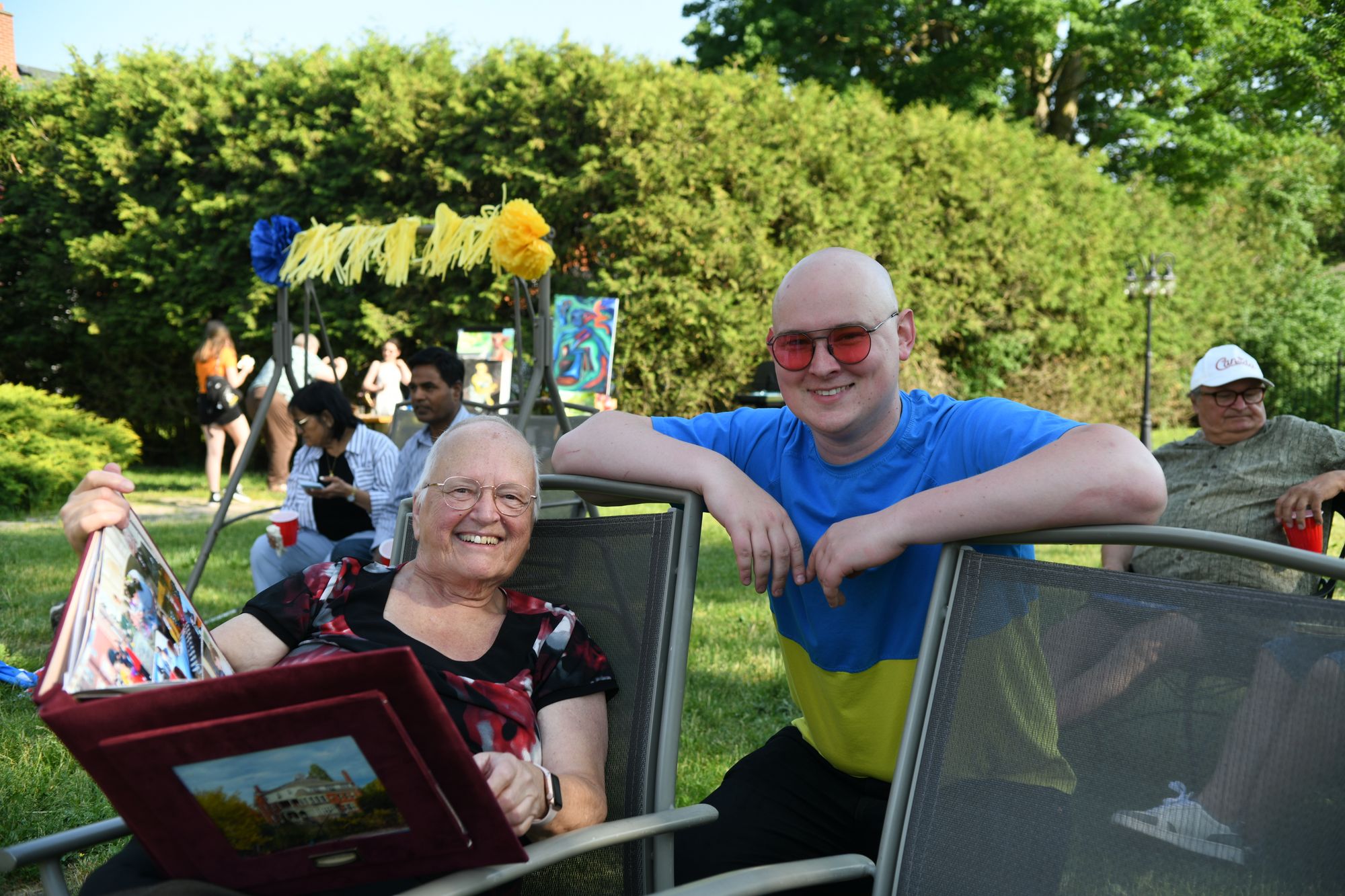
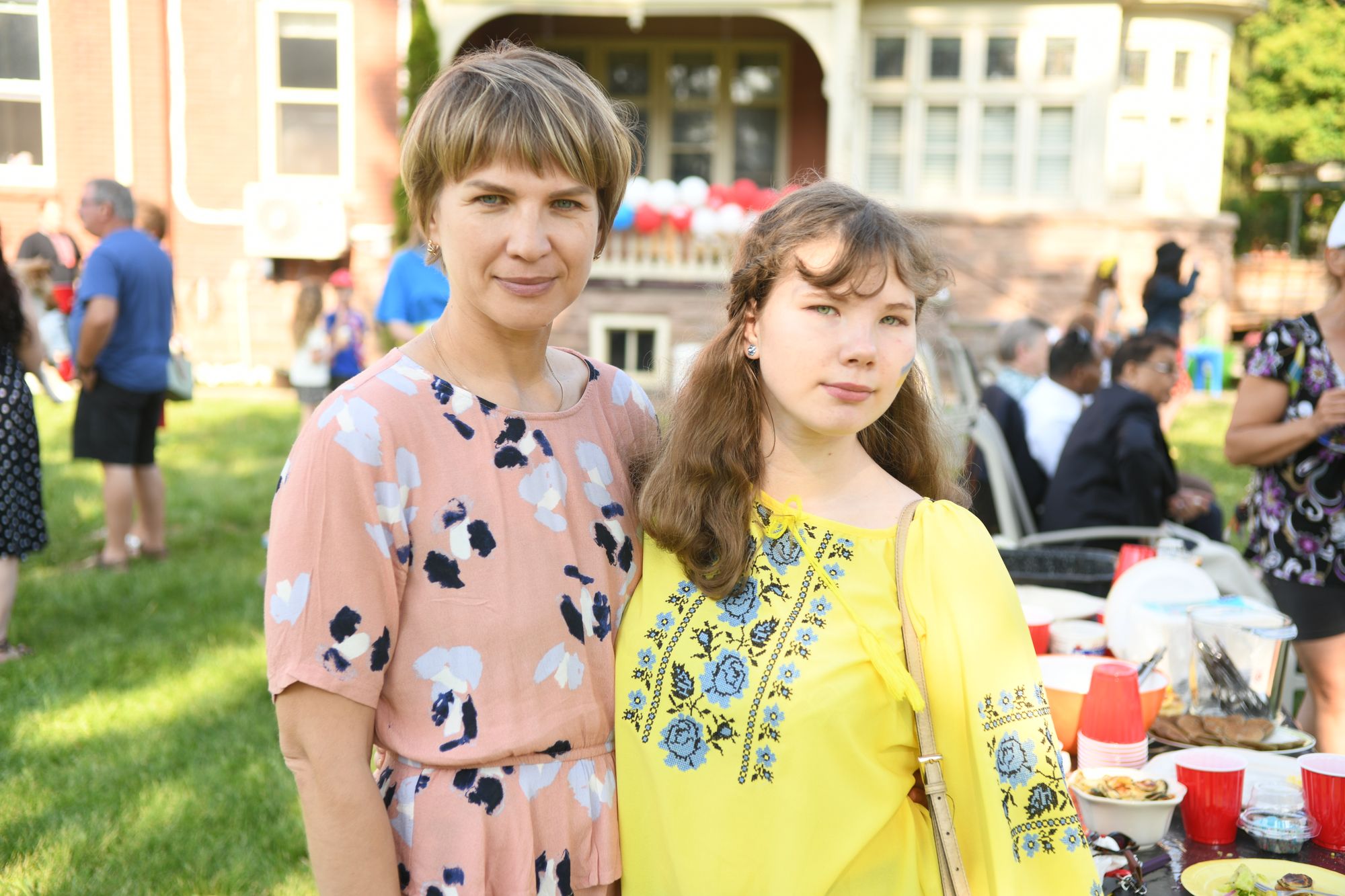
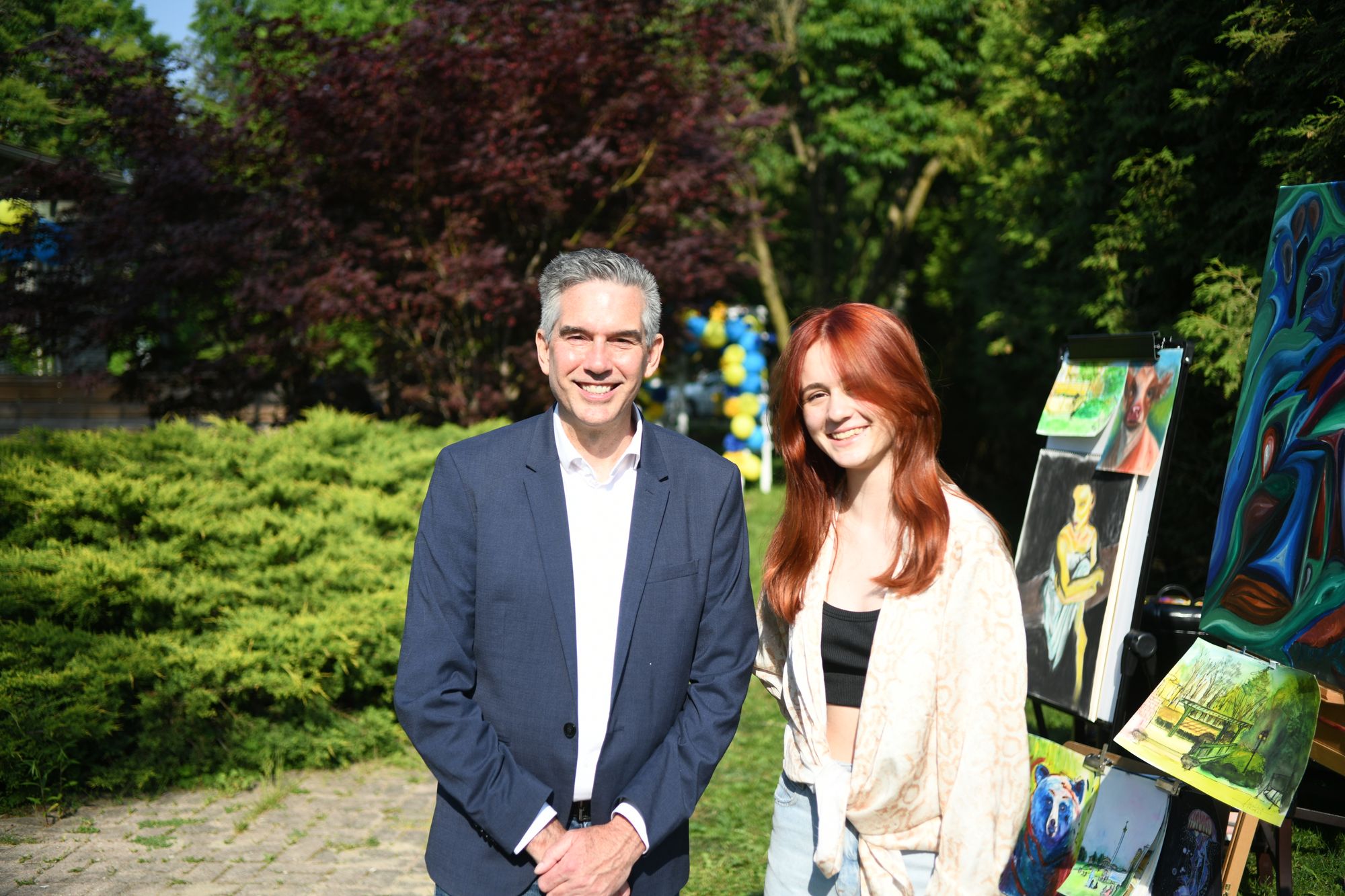
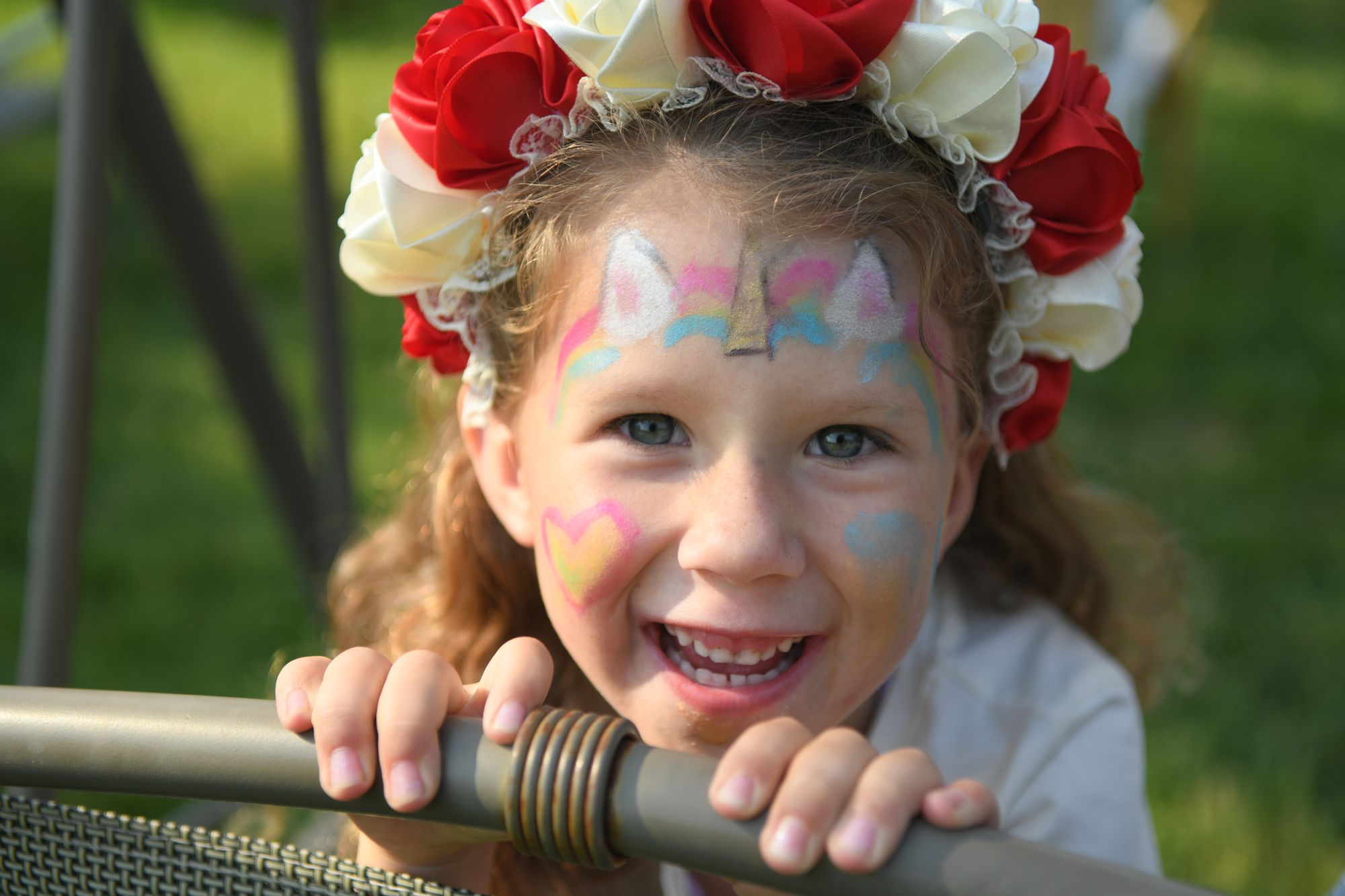
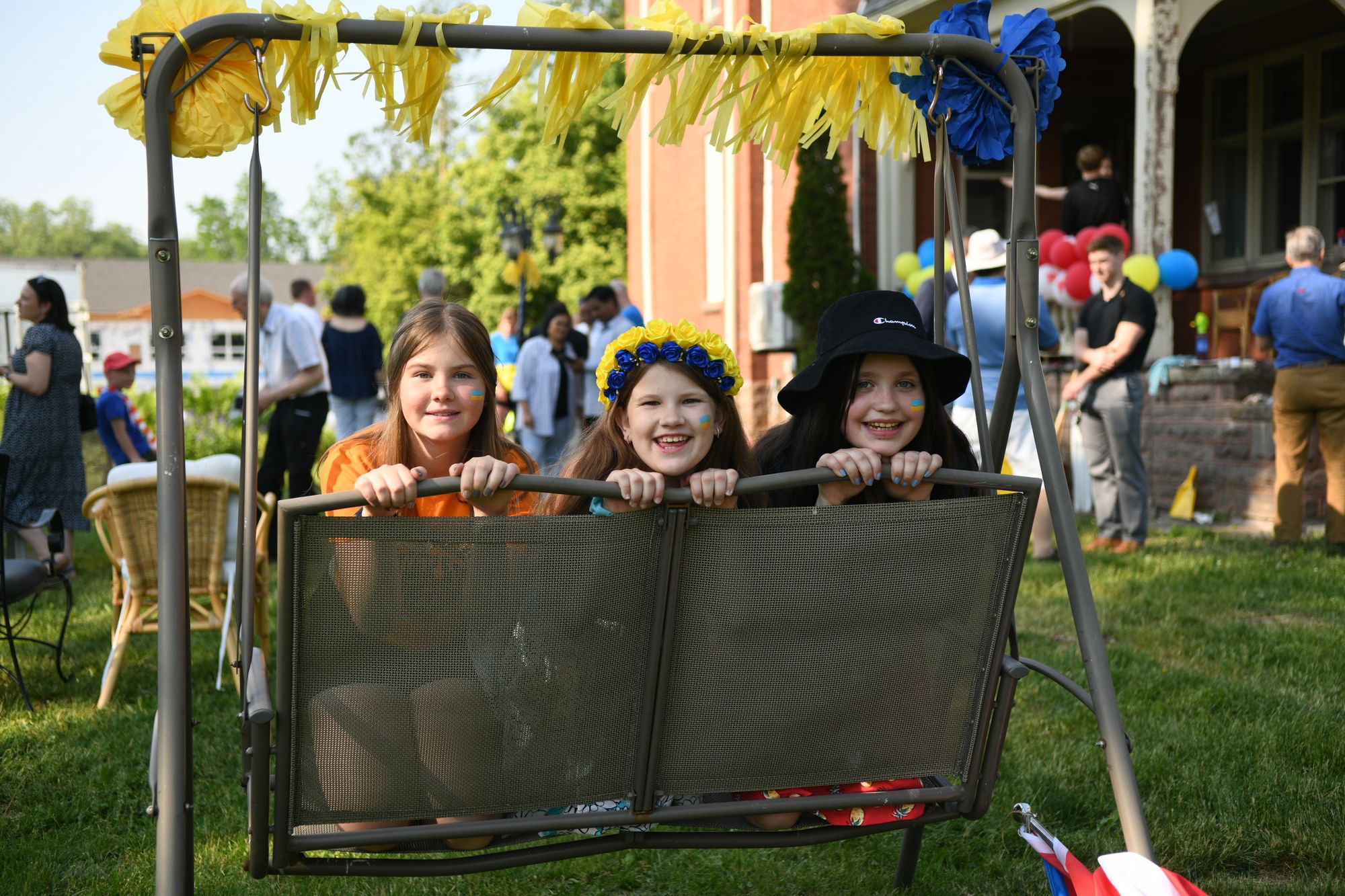

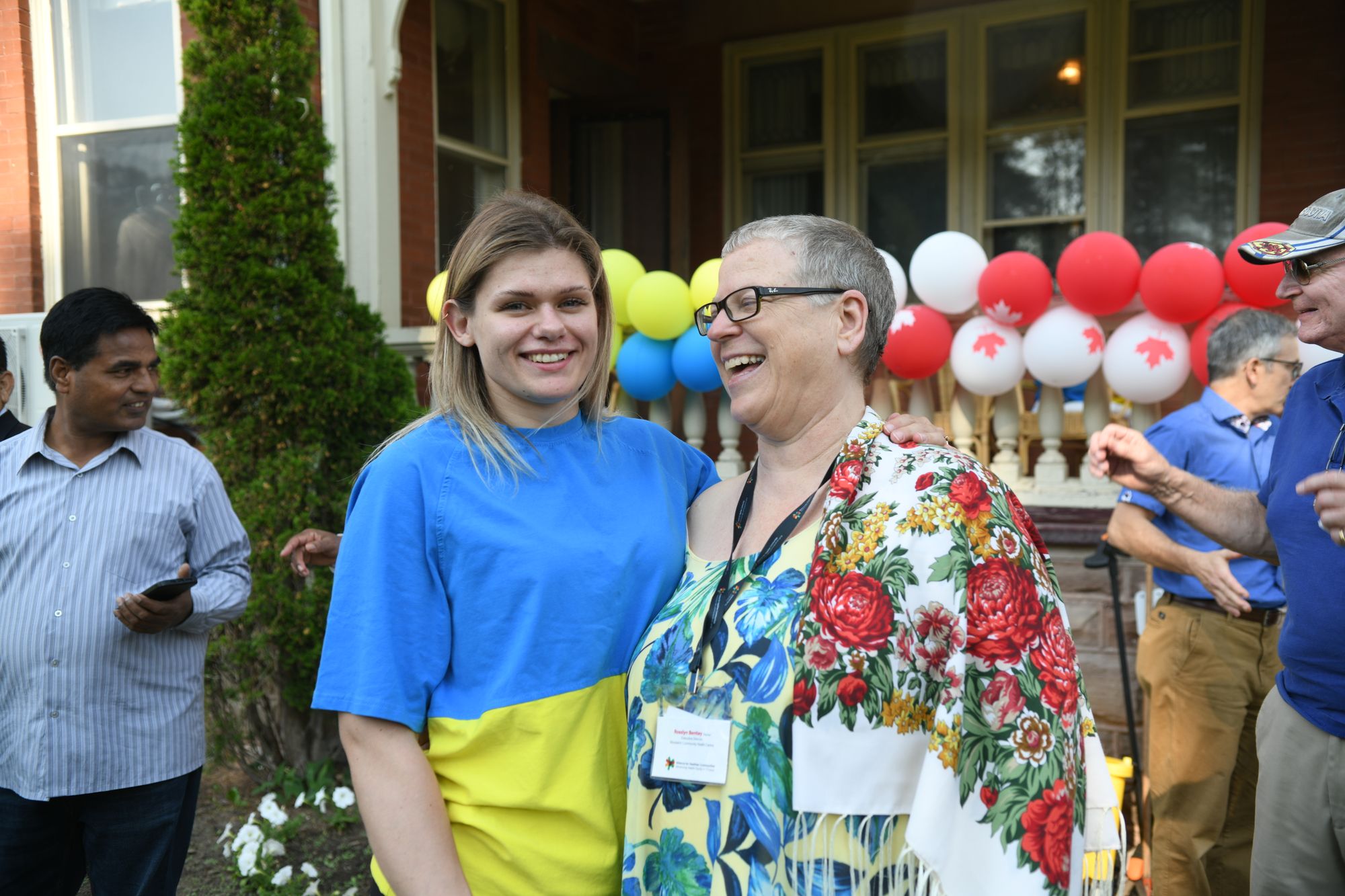
[Leah Gerber]
✴✴✴
Among all the kids laughing and playing on the Jakobstettel lawn is Illia Demchenko. His new sister, Mia, is passed around from one set of arms to another during the party. Mia was born in Vienna six months earlier.
Her father, Taras, arrived in Vienna just in time for her birth. He was able to use a loophole: the Ukrainian government was allowing businessmen to leave the country, so he started a business driving supplies across the border with a van. He was able to leave and make his way to Vienna.
The family arrived at the guest house three months ago. Taras found a job at Toyota Bokushu, and recently they found an apartment to rent in a Kitchener townhouse. Since Taras is trained as a software developer, the family plans to stay in the region to be close to the technology and startup ecosystem here.
“We are very thankful to Canada, to Canadian government, and also to the volunteers who support Ukrainian refugees, who provide them shelter, provide them supplies or furniture or anything what a newcomer needs for the first time. We really appreciate this,” said Taras.
“Yes, and never give up,” said Oleksandra. “Remember everything is in your hands and the most important thing is that you’re in a safe place and a place with opportunities.”
Adds Taras, “No matter how hard it is, the main thing is that you’re alive and that you’re safe.”
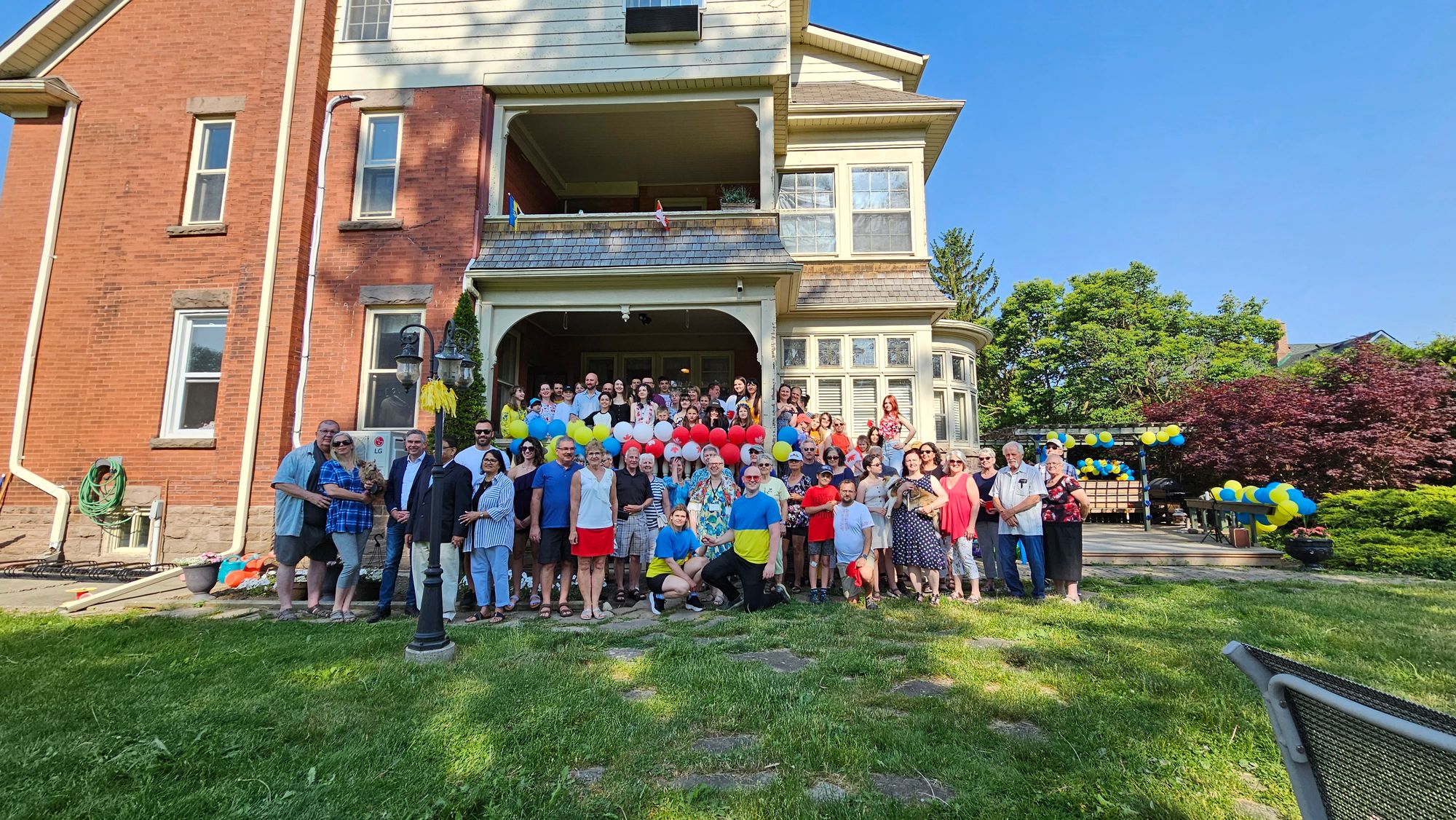
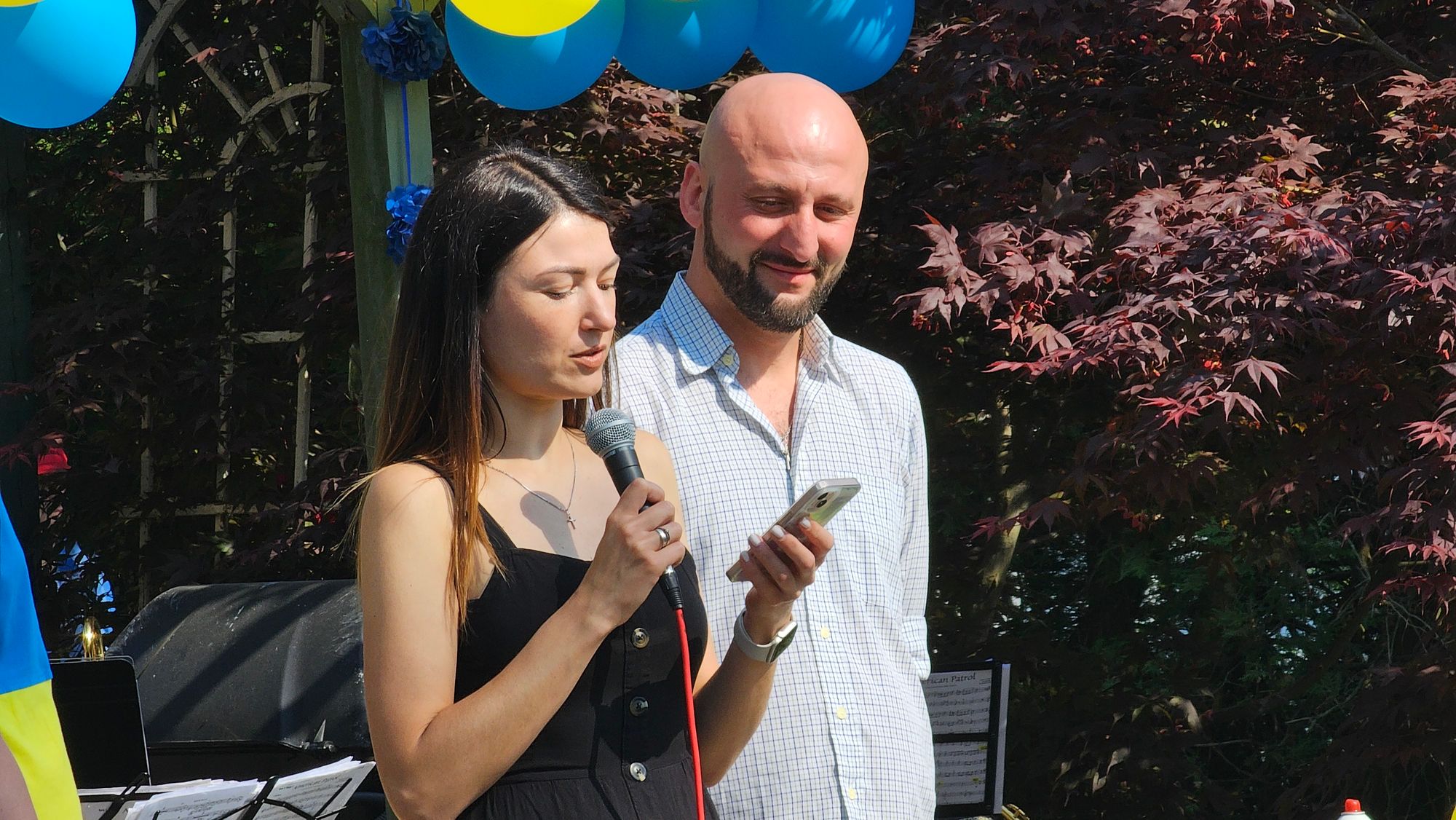
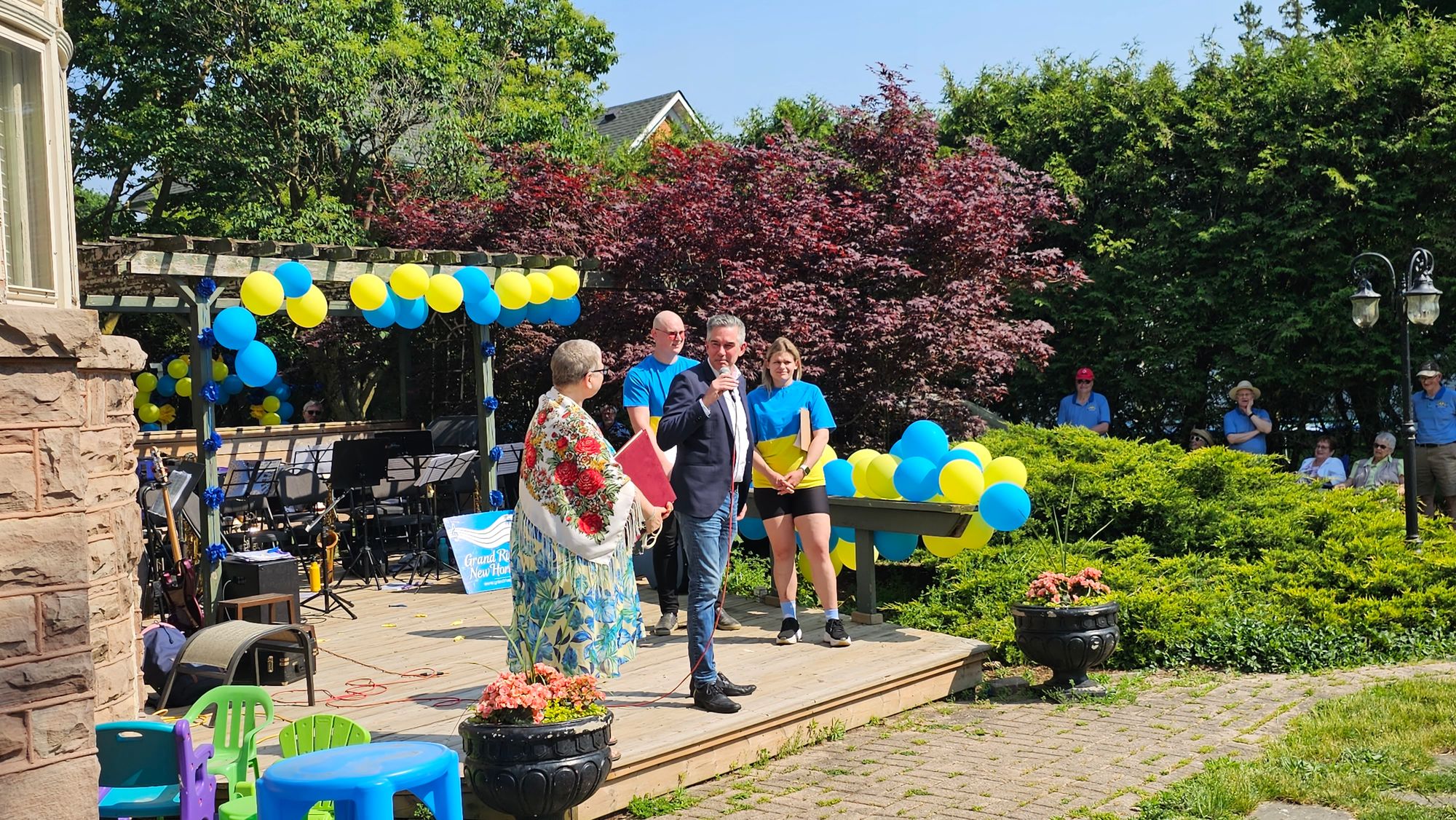
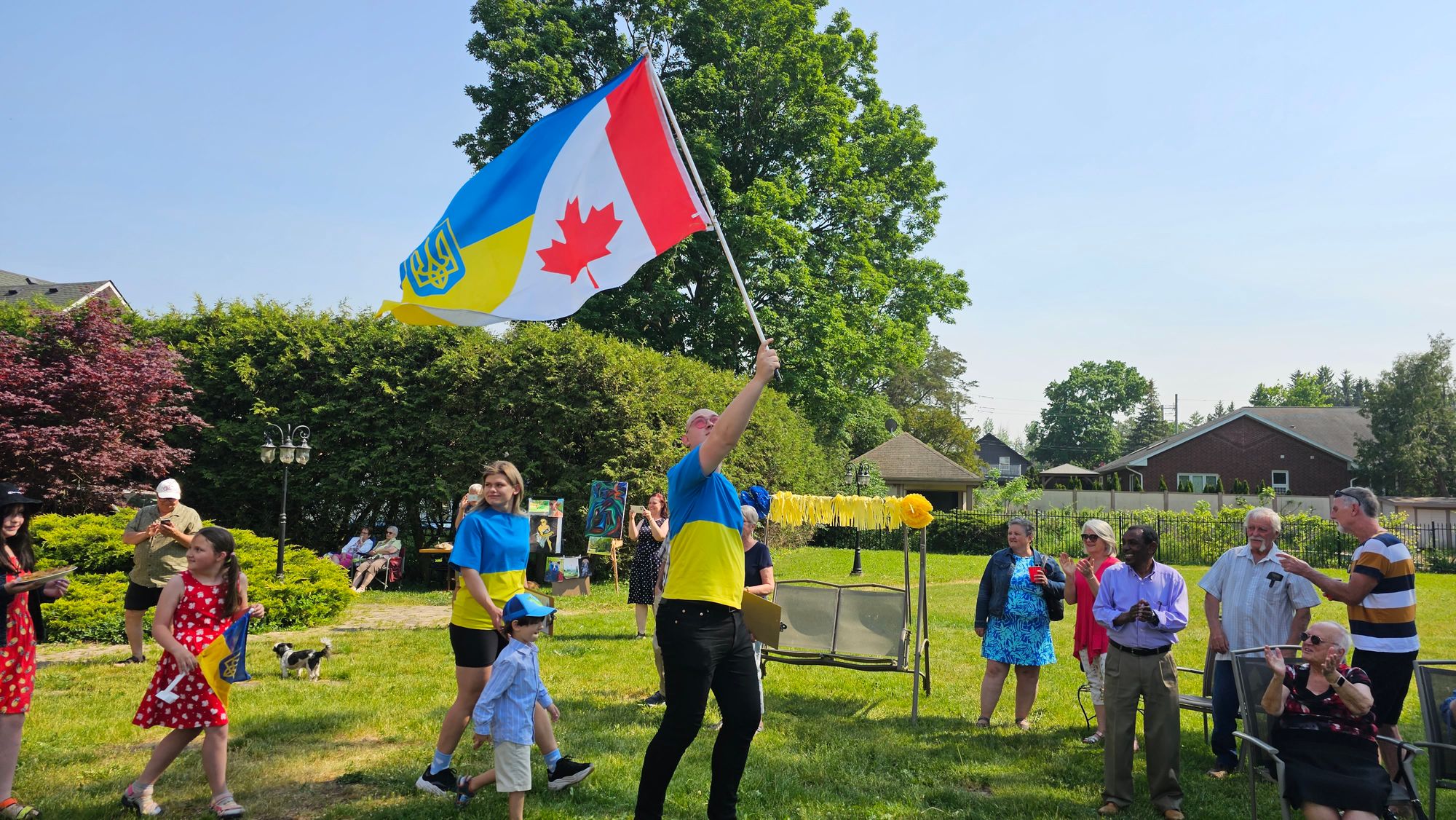
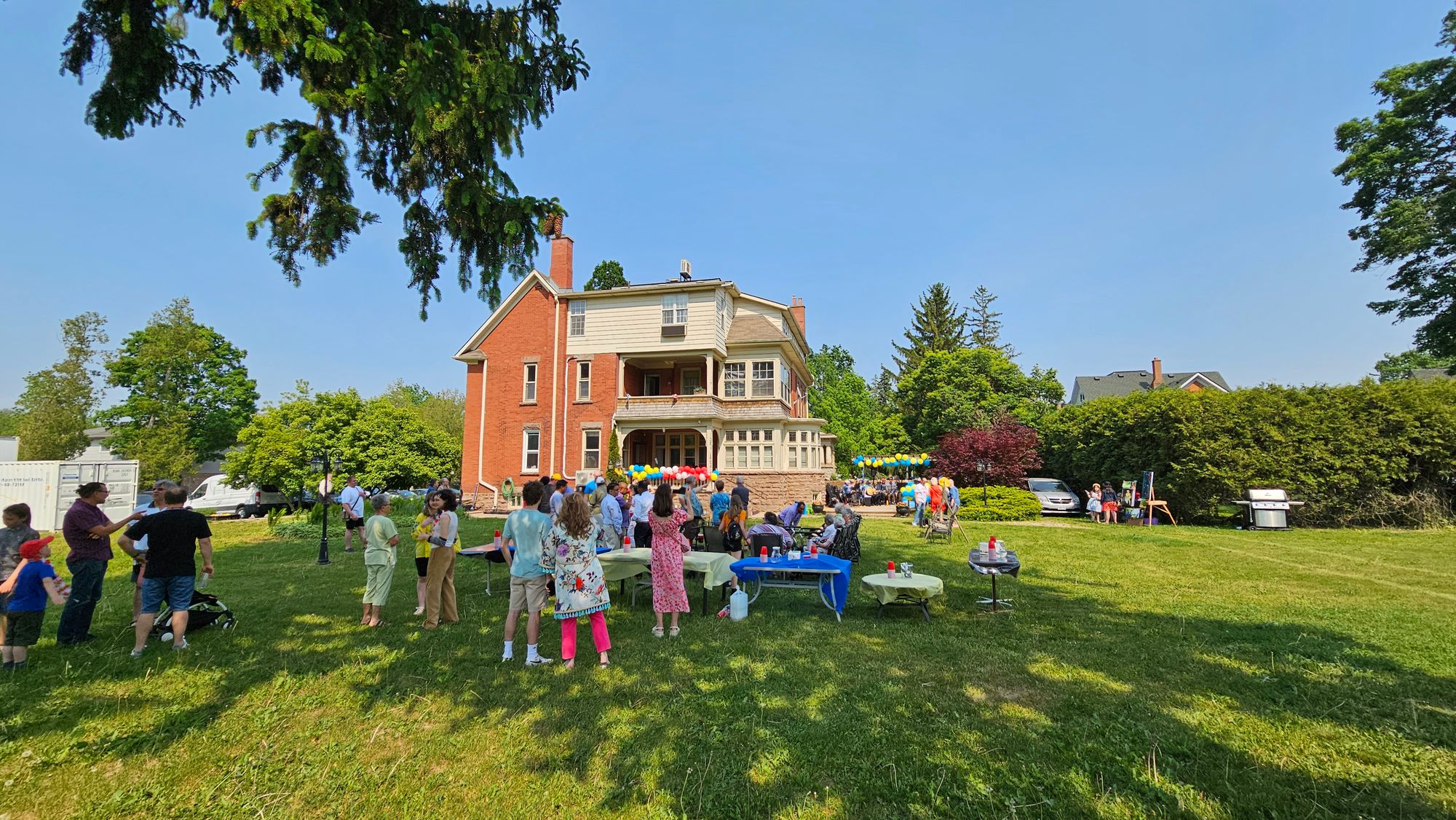
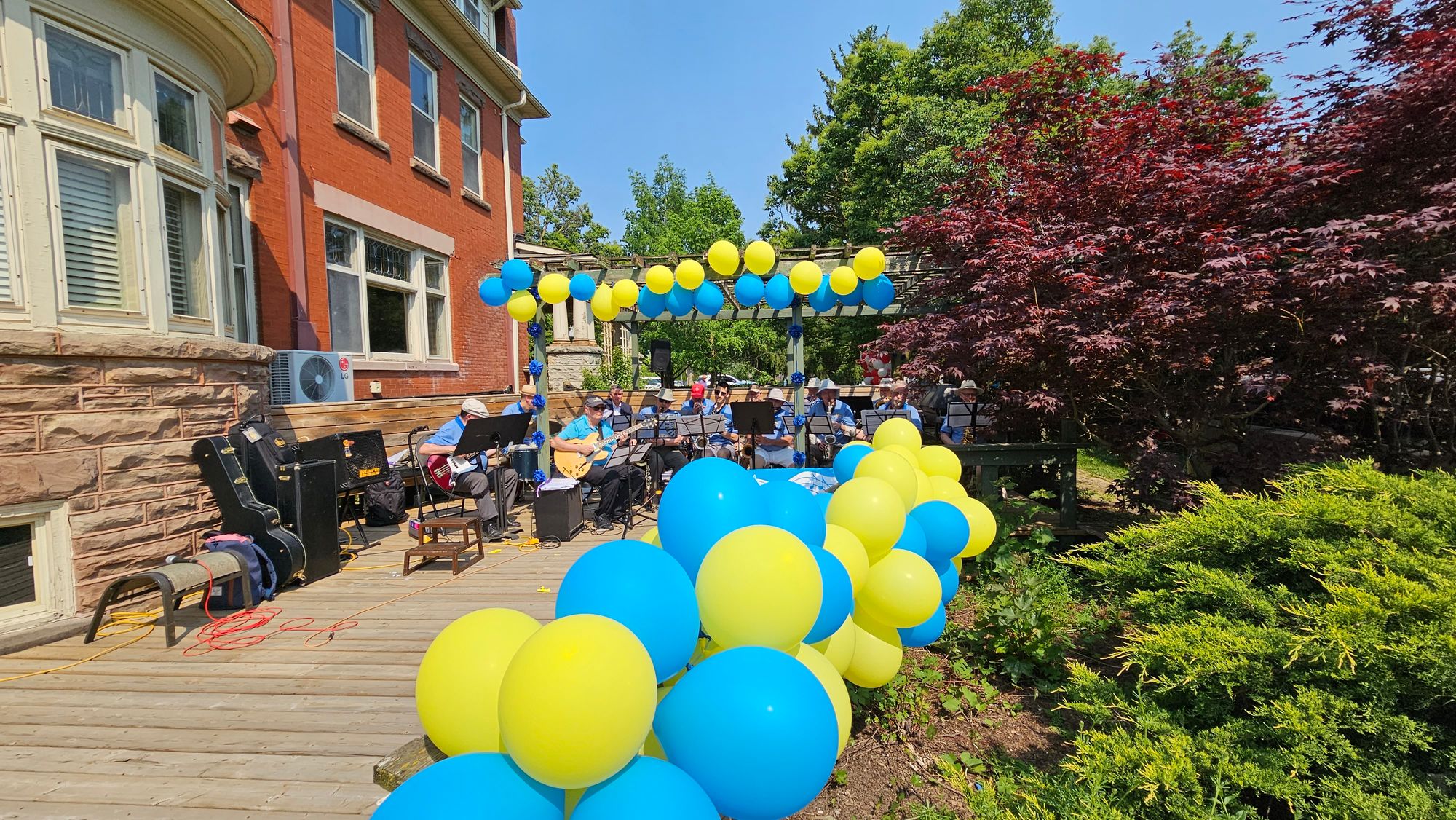
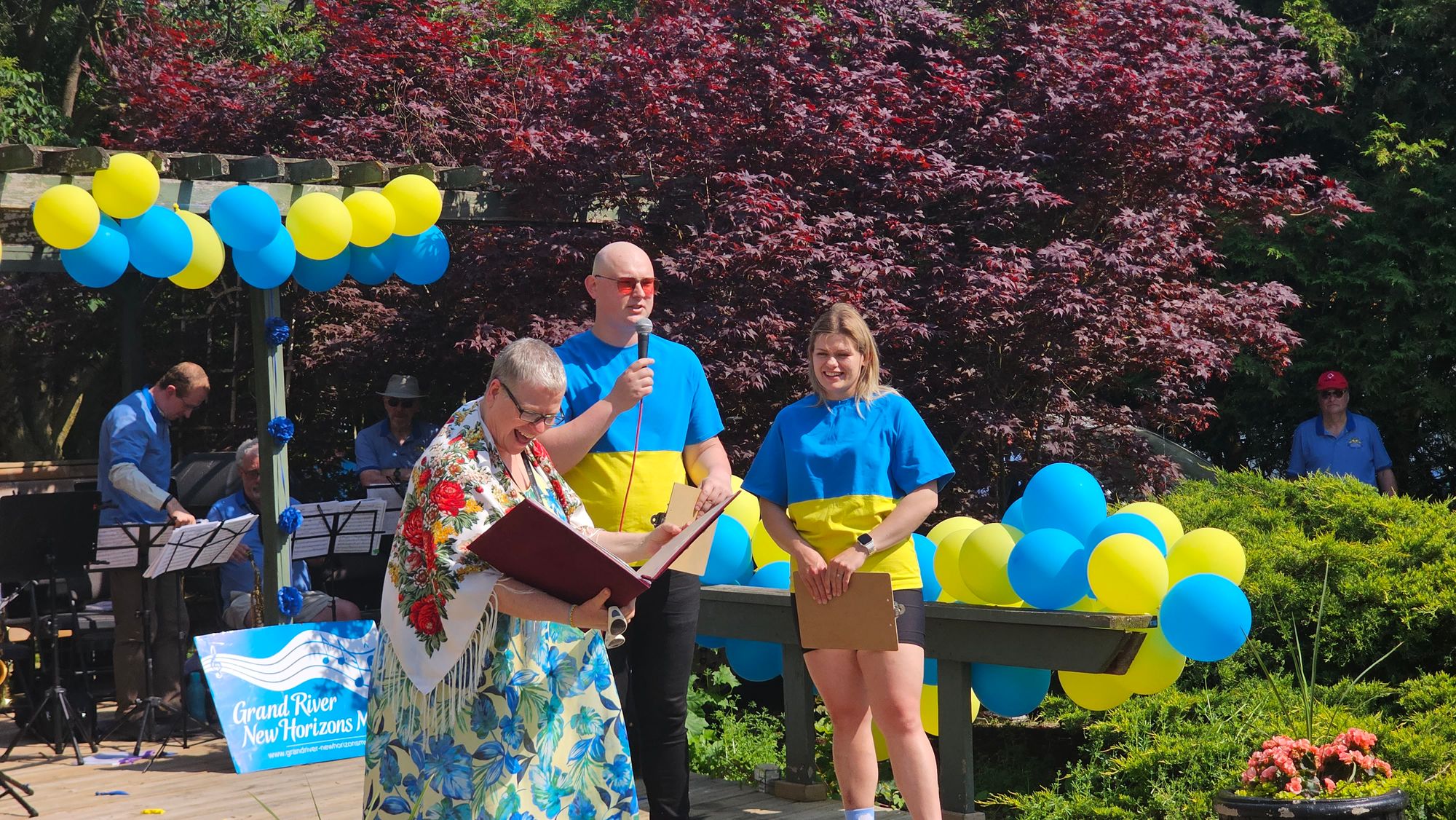
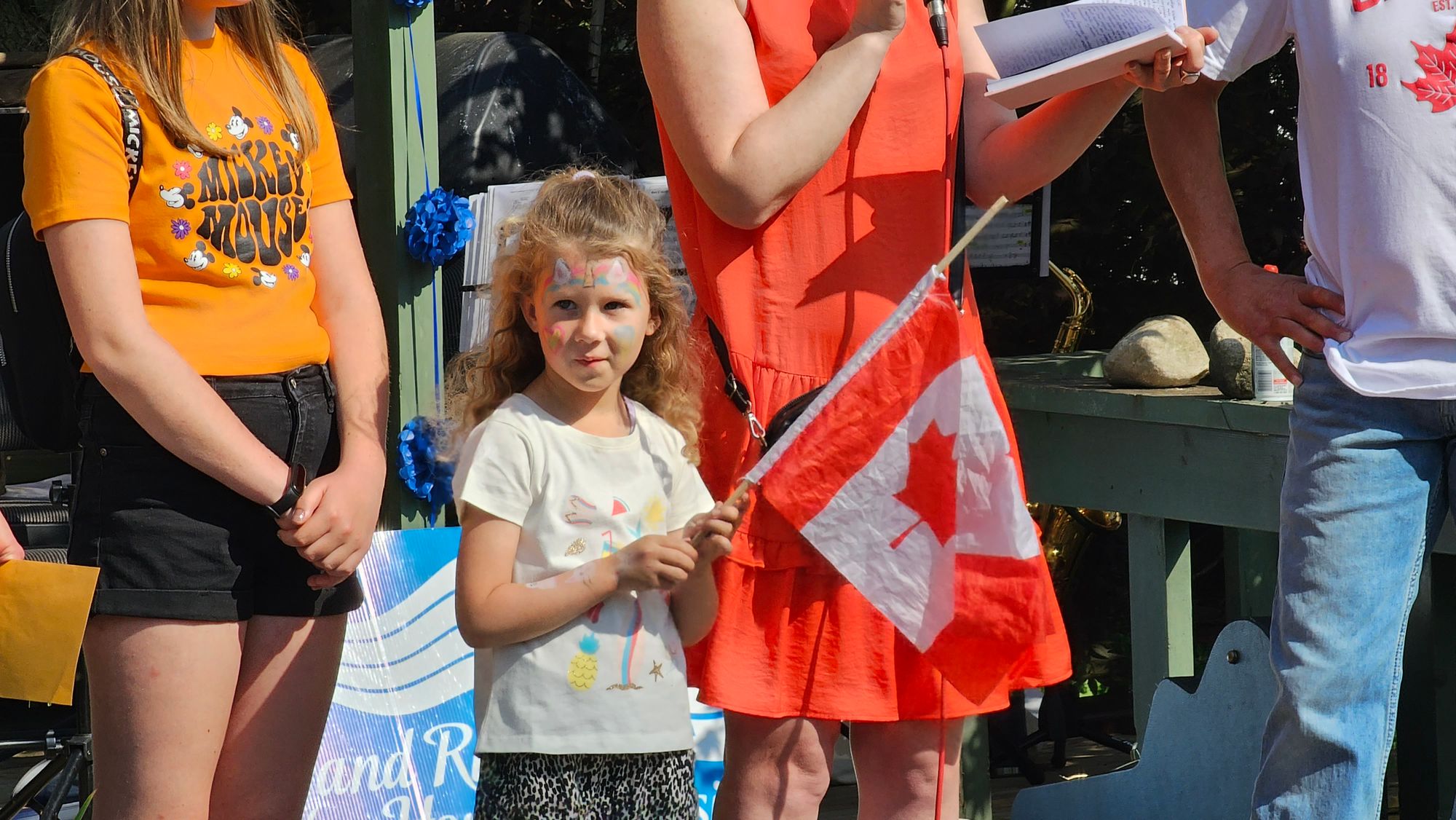
[Patrick Merlihan]

